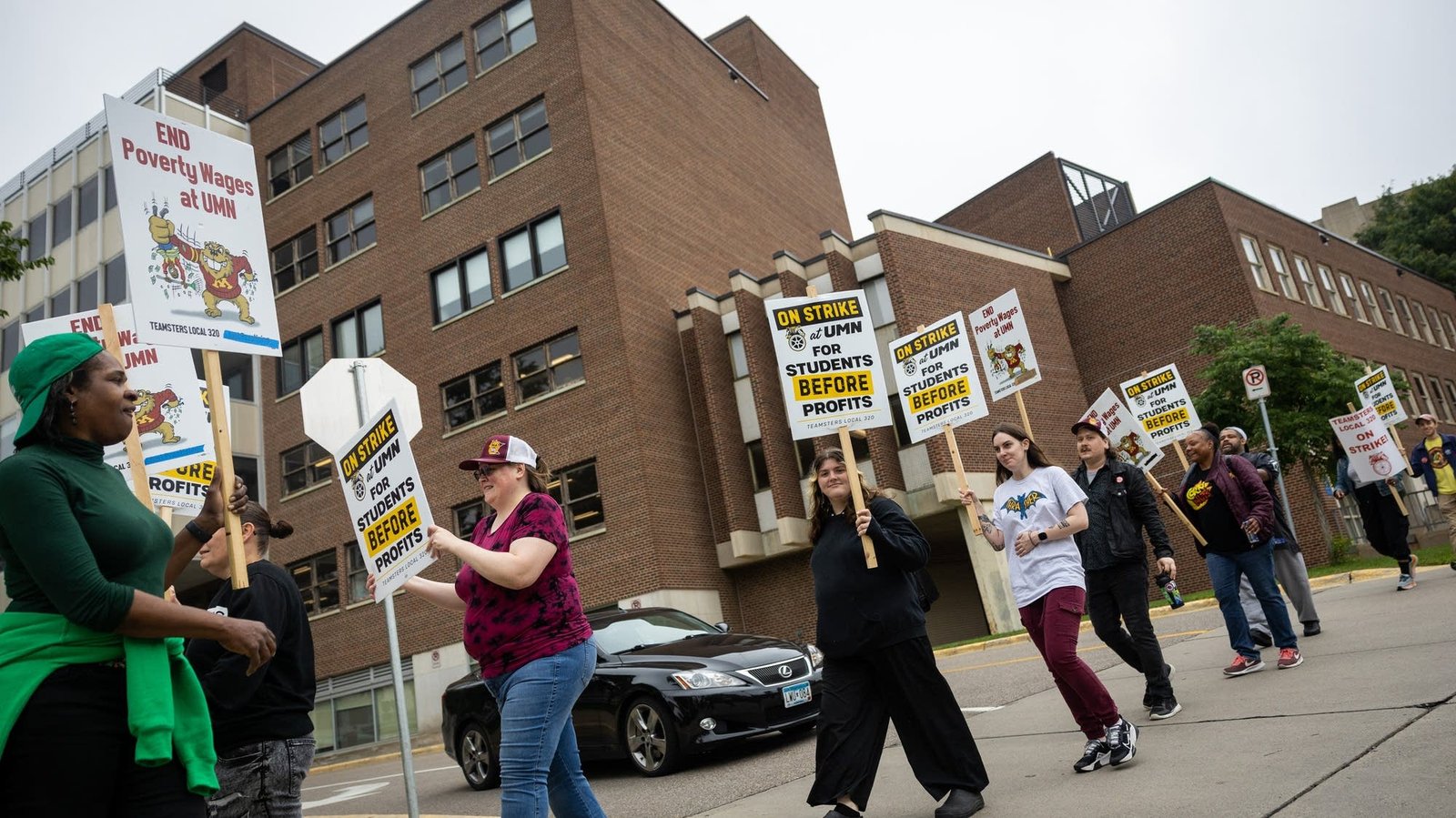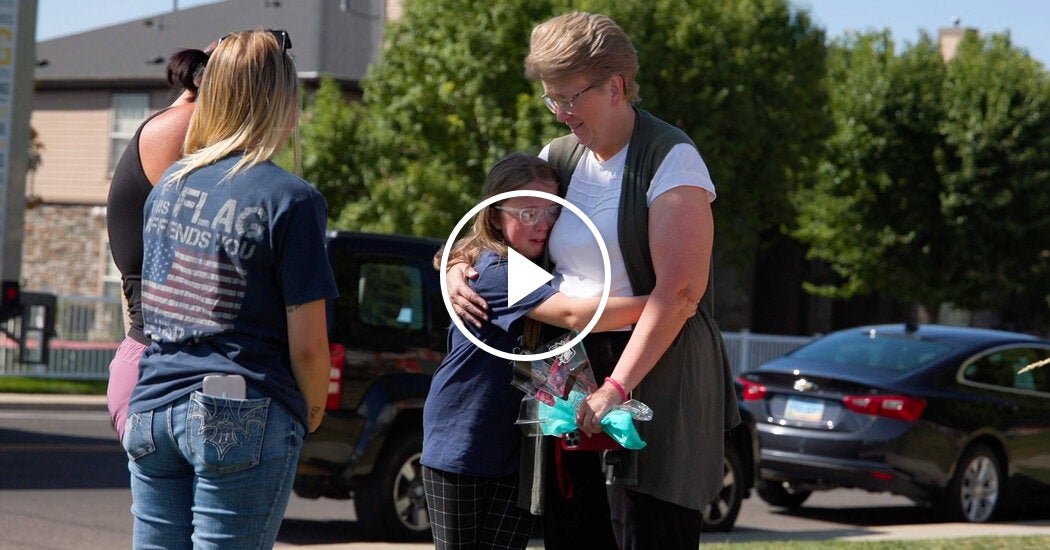The union representing 1,400 custodial, food service and maintenance workers across the University of Minnesota's five campuses says it has filed an unfair labor practice charge against the school.
Teamsters Local 320 organizers allege the university is using intimidation tactics and is “trying to break the solidarity of the union movement.” The workers are on strike after rejecting the school's final contract offer earlier this week.
“It's becoming very, very apparent to anybody who's watching how important the work is that we do at the University of Minnesota, and how our absence is causing major operational problems for the university,” lead union negotiator Jackson Kerr said at a press conference Thursday afternoon. “We want to be very clear: We want to come back to work on the terms that we're providing, but we're also hoping that people are realizing the work that we do and how it impacts the community at the university.”
Gregg Goldman, executive vice president for finance and operations at the U of M, joined MPR News host Cathy Wurzer on Morning Edition Friday with the school’s response.
The following has been lightly edited for clarity. Listen to the conversation by clicking the above player button.
U of M negotiators say the union’s demands for pay increases are not realistic because of the financial outlook at the school. What financial pressures is the U facing?
Higher education is in an existential crisis right now across many fronts, both at the federal level and at the state level. We are appreciative of what the governor and the Minnesota Senate and the House did for us this year. But that being said, we are facing times of decreased revenue, decreased grants and uncertainty going forward. so we believe that the offer that was put out to the Teamsters was fair and equitable based upon the rest of our employees across campus.
We, unfortunately, are sorry that they chose the strike. We have been at the table since the strike started, and we remain at the table and welcome the union to come join us so that we can continue having thoughtful and fruitful conversations.
The school has made budget cuts, which University President Rebecca Cunningham said she believes will help staff and faculty, as some will see raises and salary increases. So it would appear there is more money for some, but not all.
Well, actually, for all. There were reductions across campus, as has been reported; those did go into non-union and union employees. We did have a 3 percent merit and a 1 percent market [pay increase] for all of our employees, and the offer that is on the table for our teamsters is equal to what the rest of the campus got. So in no way is what we have proposed for the teamsters any less and our goals any more than others around campus have gotten.
In the 2026 budget, there are so-called strategic investments of $75 million in areas like AI, shoring up infrastructure investments and student well-being. Why not spend some of that to increase the pay of all workers at the U?
What's important is that that money is not permanent money. It's one-time money that we have been able to set aside as we start to move forward with our strategic vision under President Cunningham across all five of our campuses. It's really important for our land grant mission, in a state where we are so important to the economy and to the infrastructure, that we have those funds to invest into our schools and colleges as they start to come up with ideas and plans that tie to the strategic plan that will be introduced later this fall.
The Farm Aid concert at Huntington Bank Stadium could be moved or canceled because of the strike. Organizers say they're not going to cross picket lines. If they pull out, wouldn't that cost the school substantial money and result in a pretty big public relations hit?
What I can say here is that certainly we are very supportive of the work that Farm Aid does, not only for the farmers across our state, but for farmers across the entire country. It's unfortunate that the Teamsters chose to position their strike, I believe, at a time to directly impact Farm Aid. And, certainly, we are doing all that we can in order to bring the Teamsters back to the table. I would hope they would think about a cooling-off period and stopping the strike, so that farmers in our state and across the country are not impacted and not hurt.
I can't speak to what the contract is or isn't, but I know that should Farm Aid choose to relocate or cancel their contract, there would not be a financial impact to the university. But that being said, that's our least important factor right now. We want the show to go on. It's hugely important, and that's why we ask the Teamsters to come back to the table to continue the thoughtful, responsible negotiations that we've had with the Bureau of Mediation Services, and see if we can get this done so that Farm Aid can continue as planned.
The union says that there have been major operational problems for the U since the strike, like students not getting meals and trash piling up. What happens if the strike doesn't end soon?
I would not characterize, from my view, those types of statements the union has made. Certainly, we have an extensive plan in place. The students do continue to be fed. We did have to close one of our dining halls, which is not hugely inconvenient. Students just go to the other ones. Trash piling up, I think, is an extreme. Certainly, we focus all resources on our students to make sure that they're fed, to make sure that the dorms and the dining halls and the classrooms [are clean], which means that we might have a little less focus on the cleaning of offices, administrative space and other areas on campus. But our sole focus, as we manage through this strike, is to make sure that the instruction and research and teaching mission of what we do is not impacted.
Teamsters organizers plan to rally at 5:30 p.m. Friday on the Northrop Mall in Minneapolis.




